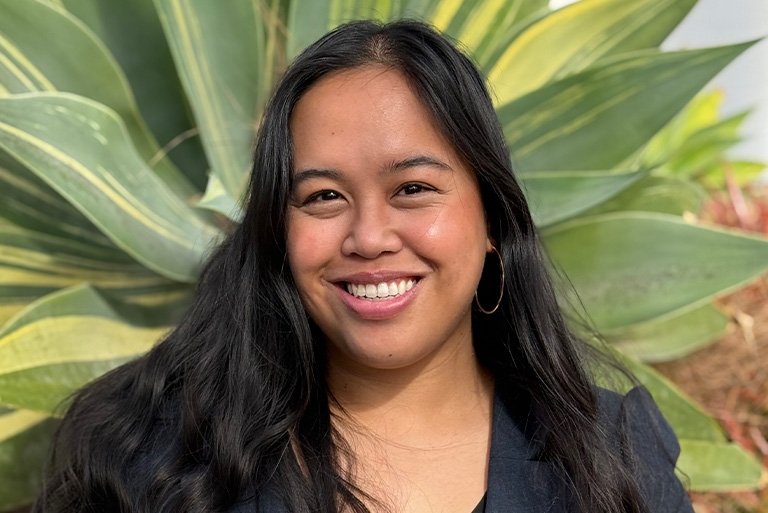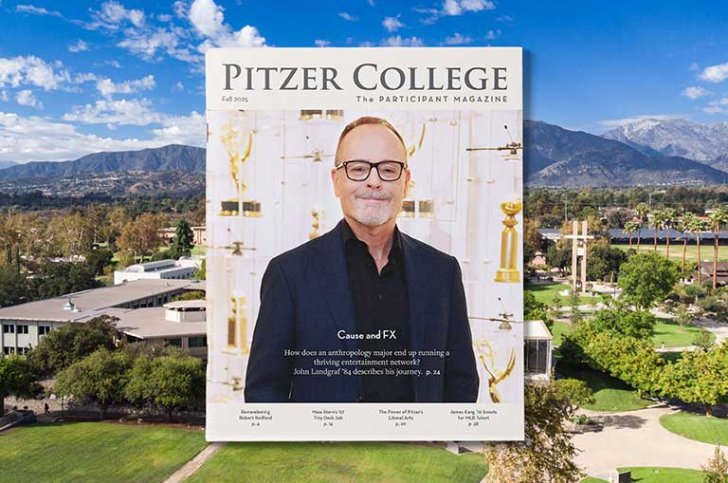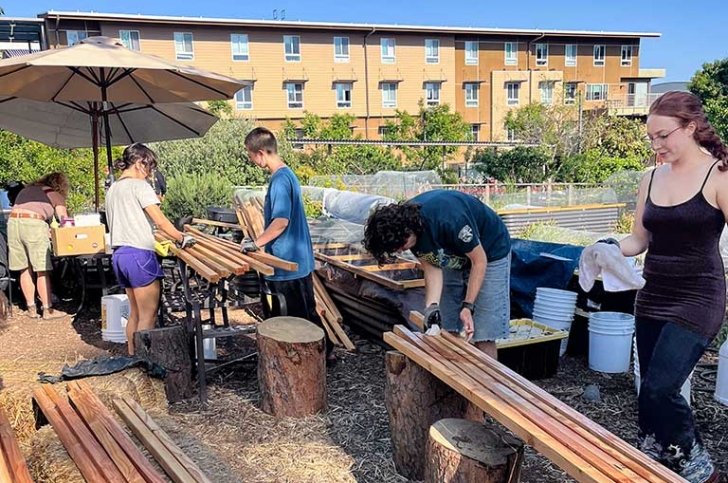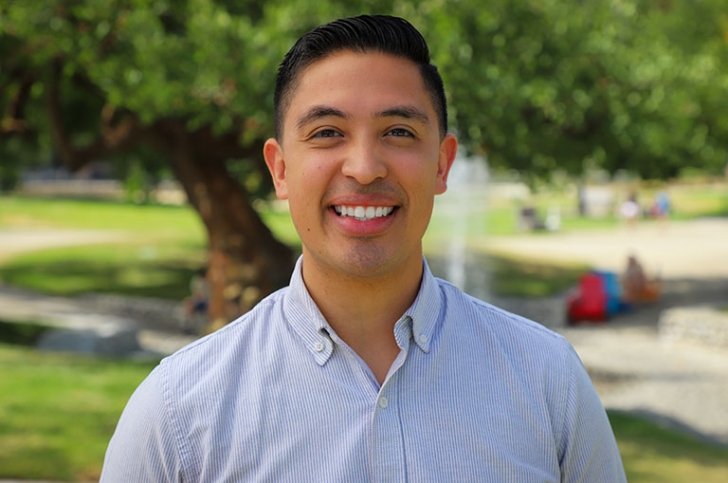Q&A With Pitzer’s New CAPAS Director
Pitzer’s Center for Asian Pacific American Students Director Dominique Acosta discusses her Filipino American heritage, community organizing, and student leadership research.

Meet Dominique “Nikki” Acosta, who started this spring as the director of Pitzer College’s Center for Asian Pacific American Students (CAPAS). Acosta is a Claremont Graduate University (CGU) doctoral student and brings experience in mentorship, research, and community organizing to her new position.
What drew you to this role to lead CAPAS?
Pitzer is tied to my personality and values—specifically with CAPAS. I was a student organizer with the Filipino community when I was an undergrad. I was part of a multicultural coalition. I wanted to work with students and support their leadership development, which is what my research interests are.
How did you get into this line of work?
I grew up in the Bay Area in a small, unincorporated area that was under-resourced. I’m a first-generation college graduate. My family immigrated from the Philippines. They were telling me to get an education. When I got to [UC Berkeley], I took all of that to heart. I worked at my university’s Filipino recruitment and retention center [Pilipinx Academic Student Services], giving access to resources I’m passionate about. More folks should have the opportunity to engage in higher education. I view education as freedom.
After graduating, I was a college advisor in Oakland. I was working for the same organization that helped me get into college. I have a pattern of returning to communities that supported me.
What do you enjoy most in your new role?
The students! They are full of life and so caring. When you work in education long enough, you can sense that youthful spirit. They inspire me. Pitzer staff and faculty have also been supportive, telling me to take my time and grow into my role. They want to help me integrate into the community. I’m not afraid to speak up because of the College’s shared governance. People here are interested in understanding what change we can make together for the better.
What are you and the CAPAS student staff working on?
Students are working on political engagement workshops. We planned a community discussion about the current state of the world to then develop and do a teach-in. A lot of the student staff are seniors, so I’m helping them navigate post-graduate life. I also did a Lunar New Year celebration in collaboration with McConnell Dining Hall, Campus Life, Pasifika Asian Student Union, and International Programs. I’m also getting to know people at the other 5Cs doing similar work.
What are the challenges in supporting the communities in the Asian Pacific Islander Desi American (APIDA) umbrella?
It’s such a vast diaspora. There’s still the model minority stereotype we push against, but there’s also a need for disaggregation of data. By putting us in one category, you forget the breakdown of Asian American students on our campus. Our stories can get lost, and we lose understanding of what each community needs.
How does your cultural heritage influence your work?
During our student retreat, I shared the Filipino community value of “kapwa.” There’s no direct translation from Tagalog to English, but it’s a shared sense of identity and taking care of one another because we’re tied to one another. Because I’m Filipino American, I think about the meshing of those two identities. I can speak to students about what it means to have and not have certain privileges with our identities.
You’re pursuing your doctoral degree in education with a concentration in higher education/student affairs at CGU. How will this inform your work as the CAPAS director?
I’m interested in how student leaders develop in nontraditional spaces of leadership. Typically, higher ed research focuses on student government, athletics, or fraternities and sororities. I’m interested in students working in cultural centers.
When students get involved in cultural work, they don’t see it as transferable to their careers. Or it’s something they do because it’s their culture and for fun. But there’s a certain development that happens when you’re working for your communities that I’d like to study. My research topic is Filipino American women who are in undergrad and in a cultural organization. My dissertation will be a case study, but I hope to also apply what I learn to CAPAS.
What do you hope for CAPAS’ future?
I’d like to further develop CAPAS as a space where students can go to explore different topics around identity. This includes identity in leadership, mental health, and professional development. After my degree, I hope to teach out of the center. I would love to offer a leadership development course. I also recognize CAPAS is the only physical space centered around a cultural identity at Pitzer. I’d love to see more of those. I hope CAPAS can grow as a space where APIDA students can lead, build community, and explore identity while also providing opportunities for people across campus to learn alongside us.
News Information
Published
Author
Bridgette Ramirez
Organization
- Center for Asian Pacific American Students
- Communications


